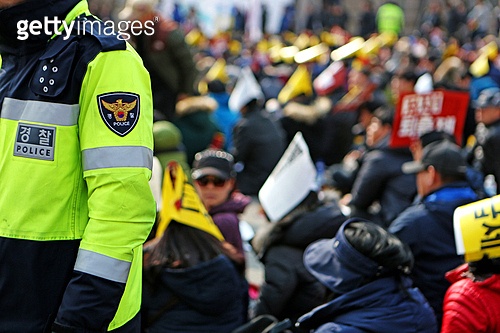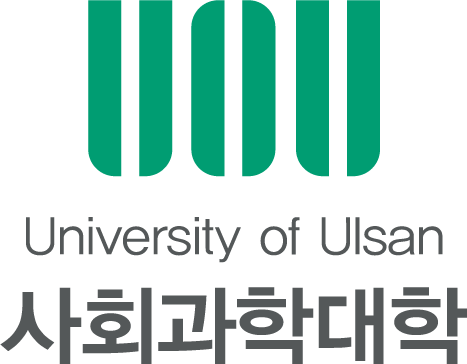- 홈
- 대학소개
- 전공소개
전공소개

경제학전공
경제학전공 홈페이지 바로가기냉철한 두뇌와 뜨거운 가슴을 갖고 최선을 다하는 경제학도!
경제학이란 인간의 경제생활을 연구하여 그 논리를 참아냄으로써
여러 가지 경제문제에 대해 적절한 대책을 강구할 수 있도록 사고의 체계를 정립하려는 학문이다.
인간의 욕망은 무한한데 이를 충족시켜 줄 수 있는 수단은 상대적으로 제한되어 있다.
경제이론은 이 제한된 수단을 유효적절하게 사용하는 방법을 선택하는 문제를 출발점으로 삼고 있으며,
이러한 관점에서 경제학은 제한된 수단의 선택에 관한 학문이라고 정의할 수 있다.
선택의 문제는 일상생활 모두를 포함한다. 실제로 경제학자들은 결혼, 가족계획, 교육, 범죄문제 등 경제문제와는 다소 거리가 있는 문제의 해결에 많은 공헌을 하고 있다.
울산대 경제학과에서는 이론경제학과 응용경제학을 체계적으로 교육함으로써, 경제문제를 분석하고 해결하는 합리적인 인재를 양성하고자 한다.
또한 전공을 통해 경제현상에 대한 균형 잡힌 시각과 현실적용에 있어서의 실용성적인 지혜를 얻게 될 것이다.
주요 교육과정 : 미시경제학, 거시경제학, 경제사, 경제학설사, 노동경제학 등.

경찰학전공
경찰학전공 홈페이지 바로가기투철한 봉사정신과 도덕성, 그리고 지역사회 주민에 대한 깊은 관심을 가지는 민주경찰!
경찰학은 가장 오래되고 기본적인 국가작용에 대해 연구하는 학문이다.
동서양을 막론하고 국가권력이 가장 먼저 시행한 일은 외적으로부터 국가를 유지·보존하는 군사행정과, 내적으로는 자국의 질서유지(체제유지)를 위한 치안질서유지행정이었다. 이것을 오늘날 경찰행정이라고 한다.
현대사회의 민주경찰은 전통적인 치안유지와 범죄예방을 위한 기능과 함께 투철한 봉사정신 도덕성, 그리고 지역사회와 주민에 대한 깊은 애정과 관심을 가지고 있어야 한다.
울산대 경찰학과에서는 경찰이론 및 실무를 체계적으로 교육함으로써, 국민의 생명과 재산을 보호하고 공공의 안녕과 질서유지를 담당할 경찰 전문 인력을 양성하고자 한다. 또한 전공을 통해 경찰 이외의 분야에서도 좋은 시민으로서 사회를 살아갈 수 있는 지혜를 얻게 될 것이다.
주요 교육과정 : 형법총론, 무술, 형사소송법, 피해자학, 범죄심리학 등.

법학전공
법학전공 홈페이지 바로가기법학을 전공하지 않고서는 법에 의해 조직되고 운영되는 우리 사회를 이해할 수 없다.
법학이란 법을 대상으로 하여 법에 관한 체계적 이해를 목적으로 하는 학문이다. 독일에서는 법학을 Brotwissenschaft, 즉 ‘빵을 위한 학문’이라고 한다.
이는 법학의 실용성을 단적으로 보여준다. 법학을 공부하면 우리 사회를 이해할 수 있고, 우리 사회에서 발생하는 각종 분쟁과 갈등에 관한 해결책을 찾을 수 있기 때문에 사회생활에 매우 유용한 학문이다.
울산대 법학과에서는 공법을 비롯한 각종 법학과 법률실무를 체계적으로 교육함으로써, 사회 갈등과 법적인 문제는 분석하고 해결하는 합리적인 인재를 양성하고자 한다.
또한 전공을 통해 법에 의해 운영되는 사회를 올바른 식견으로 바라보는 지혜를 얻게 될 것이다.
주요 교육과정 : 헌법, 민법, 상법, 형법, 행정법, 노동법 등

사회·복지학전공
사회복지학전공 홈페이지 바로가기21세기 현대사회의 핵심적인 문제들을 이해하고 해결책을 모색하는 학문!
사회·복지학은 새로운 시대적 흐름과 우리 사회의 다양한 현상에 대해서 과학적이고 체계적인 연구를 하는 학문이다.
사회·복지학은 사회의 모든 구성원들이 인간의 존엄성을 유지하며 보다 행복하게 살아갈 수 있도록 돕는 실천적인 학문이다.
인간과 사회에 대한 따스한 관심과 날카로운 통찰력으로 우리가 해결해야 할 사회문제를 찾아내고, 현실적인 대안과 실천 방안을 모색한다.
울산대 사회·복지학과에서는 사회학 이론이나 사회복지분야를 체계적으로 교육함으로써, 시대적 변화 속에서 미래의 비전을 제시할 창의적이고 능력있는 인재를 양성하고자 한다.
또한 전공을 통해 사회의 제반현상에 대한 분석능력과 실용적인 지혜를 얻게 될 것이다.
주요 교육과정 : 문화만들기, 인간행동과사회환경, 정치사회학, 사회심리학, 여성복지론 등

국제관계학전공
국제관계학전공 홈페이지 바로가기다재다능한 인재를 양성하는 세계화의 선두주자!
국제관계학은 국제관계와 국내정치를 연구하는 학문이다.
정치가 보편적이고 필수적인 사회현상인 한, 정치학은 모든 사회과학 분과학문의 모체이자 기반이다.
또한 대외의존도가 높은 우리나라가, 국제관계를 모르고 자신의 운명을 개척한다는 것은 차라리 생존을 포기한 무모한 행위나 다름없다. 더구나 탈냉전, 세계화, 정보화로 말미암아 국제관계는 과거보다 더 빠르고 복잡하게 변화하고 있다.
울산대학교 국제관계학과에서는 국제정치 및 국내정치를 체계적으로 교육함으로써, 국제·국내문제를 객관적으로 분석하고 해결하는 인재를 양성하고자 한다. 국제관계학 전공의 교육과정 이수를 통해 국제·국내 문제에 관한 다양하고 폭 넓은 지식을 쌓고 해결책을 찾을 수 있을 것이다.
주요 교육과정 : 국제관계론, 국제기구와 국제협력, 미국정치론, 현대정치이론, 정치사상사 등

행정학전공
행정학전공 홈페이지 바로가기울산지역의 문제해결과 민주행정을 선도하려는 전문가들의 모임!
행정학은 정부를 효율적이고 민주적으로 관리·경영하기 위해 정보 내·외의 행정현상을 과학적으로 이해하고 설명하려는 학문이다.
정부조직의 공공 활동영역뿐만 아니라 민간조직 및 자발적 부분과의 상호보완적 관계, 그리고 급변하는 사회정세에 대한 변화관리, 적응까지 폭넓게 다룬다.
또한 정부를 관리·경영하는 과정에서 제기되는 문제들을 해결하는데 주목적을 둠으로써 단순히 현상을 이해하고 설명하려는 순수학문과는 다른 성격을 갖는다.
울산대 행정학과에서는 행정조직에 관한 이론과 실무기법을 체계적으로 교육함으로써, 급변하는 현대사회에서 미래조망적인 인재를 양성하고자 한다.
또한 전공을 통해 책임의식과 봉사정신을 갖추고 효율적으로 문제를 해결할 수 있는 지혜를 얻게 될 것이다.
주요 교육과정 : 조직이론, 기획 및 조사분석, 정책형성론, 지방재정론, 환경행정론 등

글로벌마이스(MICE)연계전공
2021년 글로벌 마이스(MICE) 연계전공 신설!
문화기획, 외국어기반 마이스, 전시 및 컨벤션 등 3-4개 마이크로 특화전공으로 트랙화하여 연계전공 재학생의 관심에 따른 교육을 진행한다.
또한 울산전시컨벤션센터가 추진 중인 울산 마이스 서포터즈에 연계전공 학생의 실습을 연계하고, 고용노동부 지역산업맞춤형 일자리사업과 연계하여 해당 연계전공 졸업생의 마이스 분야 취업을 촉진하고자 한다.
주요 교육과정 : 추후공지
The curriculum of Economics includes three main areas :
Law(The Major in Law Homepage)
The Major in Law was set up in March 1, 1989. The department provides 2 Courses; undergraduate course and graduate course(M.A. and Ph.D.).The Department currently has six faculty members. Our faculty members are an outstanding group of leading scholars in major area of law, and they are very accessible to their students, creating a dynamic learning environment. To study on legal theory and paractice is to study on society that we live in. Because our society operates on the basis of law. Especially, society in the 21st Century increasingly demands lawyers who are not only well prepared in the conventional areas of legal education but are also knowledgeable of fields interwined with the law.To study on legal theory and practice is to study on scioety that we live in.Because our society operates on the basis of law. The curriculum of the Law includes three main areas :
Political Science(The Major in Political Science Homepage)Political Science as an academic major was established in 1991 at the College of Social Science, University of Ulsan. As Aristotle indicated, one cannot understand his society without first understanding politics. Political Science tries to provide scientific and theorethical answers to various questions of politics, both on domestic and on international levels. Political Science is becoming more and more important as the world enters into an age of globalization. Students are trained through the curriculum and other extra-curriculum activities to acquire pertinent skills and knowledge to lead the age of globalization. There are five subfields in Political Science here at the University of Ulsan, and each sub-field includes following courses.
Sociology(The Major in Sociology Homepage)
The Major in Sociology was set up in 1994.Sociology is especially important in connection with expansion of commercial, economic, scientific and cultural realations with other regional and foreign countries. The major therefore provides students with the educational training in several specialized areas. It also gives students lots of curriculum in connection with the studies of social welfare. The curriculum of Sociology includes four main areas :
Police Science(The Major in Police Science Homepage)
The Major in Police Science was established in 2005 to meet the needs of growing demand for poilice officers. It's aim is to provide academic and physical training for future Police officers who will be working in the national and local public security field.
Th Mjor in Police Science serves the purposes of general objectives as a training ground for future professionals who will be in charge of the nation's public security. The Major in Police Science trains law enforcement officers with pure faith in patriotism and mind for public service, and educate academic theories and its application methods for the development of public security.
The Mission of Police is to prevent citizens from crimes and accidents, and to supply high-quality services to meet the needs of people. The curriculum of the Police Science includes three main areas I
Public Administration(The Major in Public Administration Homepage)
The Department of Public Administration founded in 1985 offers three academic degree programs: the Bachelor of Art, the Master of Art, and Ph. D
The study of public administration seeks a better World through building a bridge between the knowledge of social science and social problems.
The Bachlor of Art is designed for undergraduates who are prepar-ing for careers in the public or private sector in management, policy studies, or public financial management.
The Master of Art provides a program designed to broaden under-standing of economic, political, and social issues that encompass public service and develop expertise in one or more areas of specializa-tion.
The Ph.D. combines rigorous social science training, knowledge of government decision-making processes and problem-solving capabili-ties with an understanding of the substantive aspects of public policies and their effects on society.
